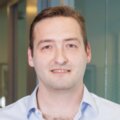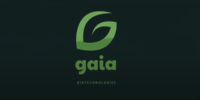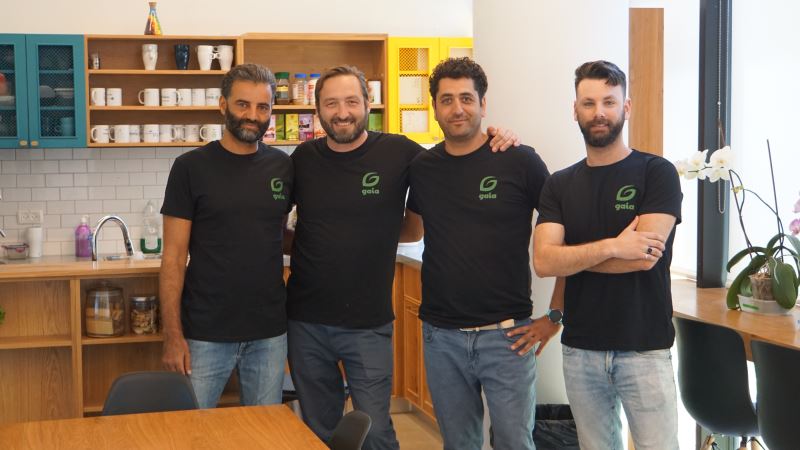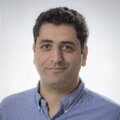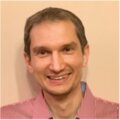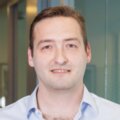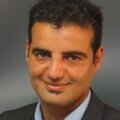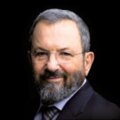Gaia Biotechnologies
Better future through synthetic biology
207% of funding target
Highlights
Highlights
Revolutionary Technology from MIT Uses Bacteria to Clean our Planet
Over 80% of garbage ends up in landfills, where it gradually breaks down and contaminates our water, air and soil with billions of tons of plastic particles, oil, insecticides, and medicines. Traditional recycling methods are ineffective for difficult-to-collect waste. Developed by MIT scientists, including one of Gaia Bio's founders, the company's innovative technology trains bacteria to carry out specific biological functions in their natural habitats, harnessing them to break down micro-pollutants anywhere and under any condition and clean the environment at a molecular level.
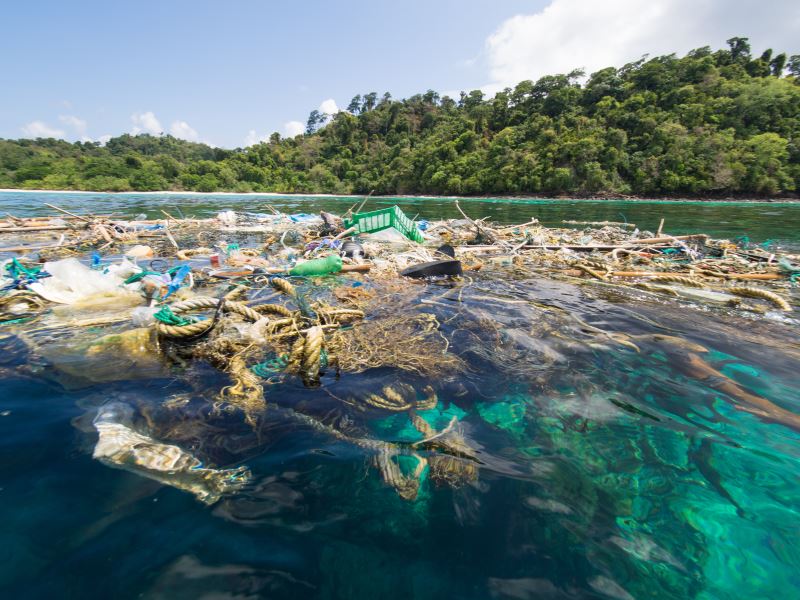
Synthetic Biology: A Rapidly Expanding Market with Immense Commercial Opportunities
As one of the few SynBio companies in Israel, Gaia-Bio operates in a thriving and rapidly growing global market. Their unique development allows for advanced genetic methods, previously limited to specific bacteria strains in laboratory settings, to be used on bacteria from any environment, at a low cost, and on an industrial scale. Currently, the company produces bacteria that create highly valuable biological materials such as melanin for the cosmetic industry, growth hormones for Pharma and FoodTech industries, and bacteria that decompose plastic and microplastic. This innovative approach to genetic engineering offers promising potential for future industrial and scientific applications.
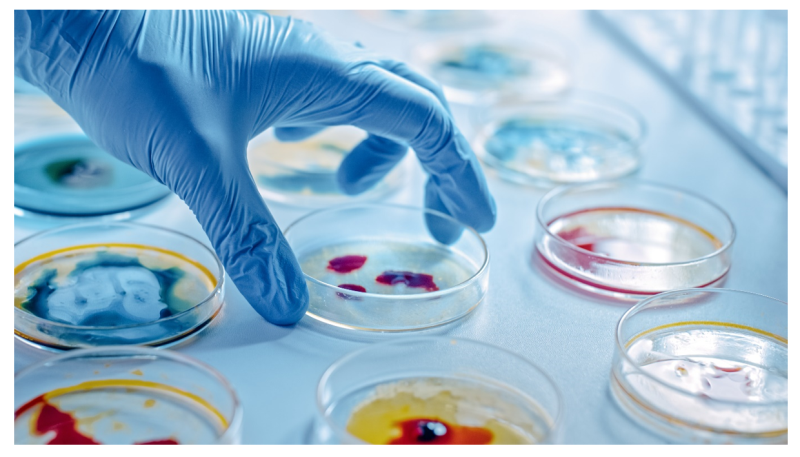
Technology licensed from MIT and exclusive IP on all developed bacteria
Gaia Bio holds a license from MIT University to use revolutionary technology that enables working directly with bacteria sourced from the natural environment. This direct link with nature significantly shortens the development time from years to months, providing endless application possibilities. Any bacterial strain that completes the process becomes exclusive intellectual property owned by Gaia-Bio.

Advanced Negotiations with Industry Leaders Such as Syngenta, Merck, and L'Oréal
Leveraging its expanding bacteria catalog, Gaia-BioS has established strategic partnerships with global industry leaders. The company is currently in negotiations with major chemical and cosmetic companies such as Merck and L'Oreal, who are interested in Gaia-Bio's unique biological production capabilities. Additionally, large energy and agricultural corporations like Repsol and Syngenta, who invest billions in sustainable development, have expressed interest in Gaia-Bio's pollution breakdown technology.
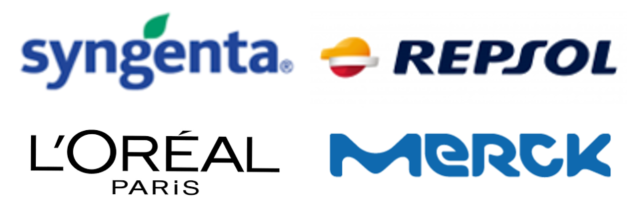
Seed Funding by "Venture Israel" Fund and an Esteemed Advisory Board Including Prof. Siegal Sadetzky and Former Prime Minister Ehud Barak
Despite being in operation for less than two years, Gaia-Bio has already raised substantial seed funding from Venture Israel and Saras Capital venture capital funds, as well as private European investors. The company has also recruited esteemed senior advisors such as Prof. Siegal Sadetzky, former head of public health in Israel's health ministry, and former Prime Minister of Israel Ehud Barak, who serves on the company's board of directors. These impressive achievements reflect the potential of Gaia-Bio's innovative solutions and the confidence of investors and industry experts in the company's future success.

An Exceptional Team of World-Class Scientists and Business Leaders
Gaia-Bio was founded by a team of world-class SynBio scientists and biotech industry experts with extensive experience in founding, managing, and selling cutting-edge companies. Dr. Johann Elbaz, former head of the SynBio lab at Tel Aviv University, was part of the original MIT group that developed Gaia-Bio's technology during a post-doc at MIT University. Dr. Konstantin Kogan, Gaia-Bio's chief biologist, received his Ph.D. in structural and molecular biology from the Weismann Institute. Mr. Nikita Shenkar, the CEO, is a former partner at Reinvent venture capital fund and a strategic advisor at Boston Consulting Group. Together, this exceptional team brings a wealth of expertise and knowledge to Gaia-Bio, positioning the company for success in the rapidly growing SynBio industry.
Pitch
Pitch
The name plastic is used for a wide variety of materials that are designed to be durable, mechanically strong, and airtight. These properties were a blessing for humankind for many years, but they create a major problem for our generation. Suppose you have breakfast, and when you are finished you are left with an empty banana peel and a bottle of orange juice. The banana peel is food for animals, insects, and millions of bacteria and will quickly break down and return to nature. The bottle was designed to do the complete opposite.
Once a piece of plastic reaches the garbage there is a time window of several years where it is collectable and recyclable. The story usually ends differently for billions of tons of plastic. Sun, wind, and other factors will break down the bottle into tiny particles called micro and nano-plastic. These plastic particles pollute oceans, ground, and air and get inside every living creature. It is in our food, we breathe it and drink it. It is estimated that an adult ingests up to five grams (the weight of a credit card) of microplastic every week. Plastic has an inflammatory effect, it is poisonous and causes cancer, and can even pass through the blood-brain barrier, reach the brain and cause irreversible damage.
Our generation faces the global garbage crises and takes action, but it was impossible to do anything with micro and nano plastic until Gaia-Bio came along. The tiny plastic particles are too small to be recycled, are impossible to collect, and are blended deeply into the environment. Even if we stop using plastic now, the particle problem will stick around for decades. Today’s microplastic comes from a plastic produced more than 20 years ago, and we are far from being able to handle the situation.
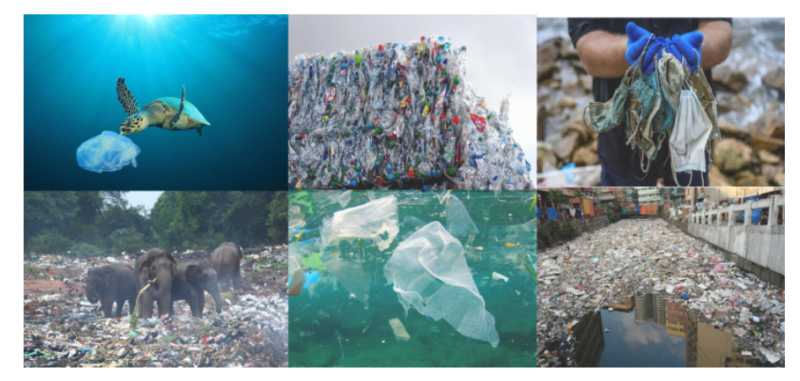
The solution
Gaia-Bio’s scientists have adapted a groundbreaking SynBio technology developed at MIT for use outside the lab, on bacteria coming directly from the natural environment. Until now, “teaching” bacteria was only possible for specific types, and only in a controlled, laboratory setting. Gaia-Bio broke through the limitations and is the only company able to teach bacteria anywhere, under any condition. The cutting-edge technology enables Gaia-Bio to break down specific contaminations in any environment based on adapted bacteria directly from the polluted site.
Gaia-Bio’s micro plastic breakdown process doesn’t leave any leftovers or by-products or needs additional materials or energy. The teaching process is based on bacterial properties that already exist in nature, so it doesn’t involve expensive, long-term development processes. Gaia-Bio recognizes suitable natural bacteria and develops the required abilities accurately and with minimal effort, so the bacteria actually do most of the work.
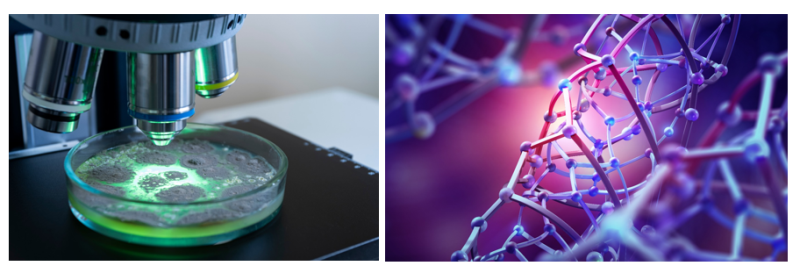
The technology
The biological ability to break down plastic was first discovered in Japan, in 2016, when plastic (PET), one of the most commonly used types of plastic today) eating bacteria was found in the ground. This type of bacteria breaks down the huge polymer chains that plastic is made of into sugar that it can eat. Today, using cutting-edge SynBio technology, we can teach other types of bacteria to do the same.
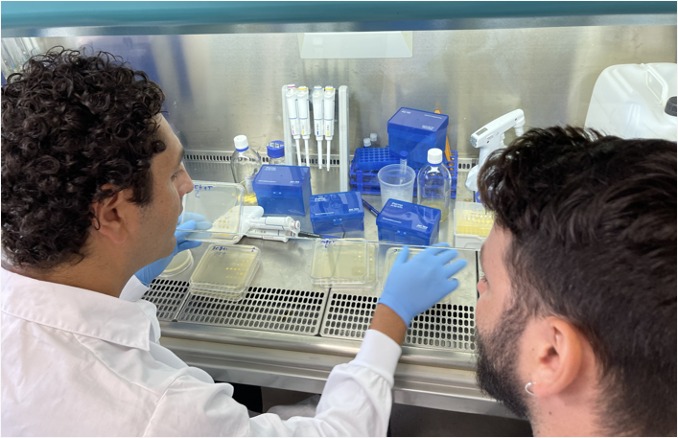
The groundbreaking discovery of plastic-eating bacteria and SynBio technologies were only usable on a minimal number of bacteria types. These types need accurate laboratory conditions to survive the teaching process and to actually break down plastic. It was impossible to use the technology against micro and nano-plastic, which are impossible to remove from the environment. Gaia-Bio’s technology works on an infinite variety of bacteria outside the lab, taking biological plastic breakdown directly to the environment. Gaia-Bio’s bacteria actually come from the polluted environment and go back with the ability to clean it. Because they return to work in their natural conditions they live longer and produce high yields in short time.
Gaia-Bio’s breakthrough is the first step in the long process of healing our environment from particle plastic pollution. The process can be adapted to clean oil, medicine, insecticides, and fertilizers, all based on local bacteria. Gaia-bio also sees the industrial potential of its unique technology and uses it to identify and adapt specific bacteria for clean, efficient, highly profitable biological material manufacturing.
Team
Team
|
Dr. Johann Elbaz, the companies chief scientist, is the former lead scientist of the SynBio lab in Tel Aviv university, and one of the founders of the Israeli SynBio industry. After receiving his PhD. From the Hebrew University, Dr. Elbaz received a post-doc position in the famous MIT research institute in the united states. He was trained in state of the art SynBio techniques in Professor Christian Voigt’s lab, which was the starting point of several SynBio unicorns (Asimov, Pivot Bio, Bolt Threads). During his time in MIT Dr. Elbaz developed Gaia Bio’s bacteria training methods which are the foundation of the companies unique technology and source of its huge potential.
|
|
Dr. Kogan, Gaia Bio’s chief biologist, recieved his PhD. From the Israeli Weizmann research institute, and went on to become a world class expert in structural and molecular biology. Dr. Kogan is in charge of the many complex biological process on which the companies technology is based, including DNA replication, cellular protein expression and purification of biological materials.
|
|
Mr. Nikita Shenkar is a venture capital investment expert, former strategic consultant with the international Boston Consulting Group and former partner of Reinvent capital venture fund. Mr. Shenkar joined the company as CEO after meeting Dr. Elbaz and identifying the revolutionary potential of Gaia Bio’s technology.
|
|
Mr. Cohen, the companies head of business development, is a famous Israeli Biotech entrepreneur. Mr. Cohen is a leading expert in business development, branding and marketing for both Israeli and international markets, and has already founded several publicly traded companies. Mr. Cohen was the vice president of INTELICANNA, a major medicinal cannabis firm, and together with his brother, he founded Mycolivia, which specializes in medicinal mushrooms.
|
|
Prof. Sadetzki is a world class public health expert, physician and professor in Tel Aviv University. She has gained invaluable experience in international health management while working for the world health organization (WHO), and was the head of the Israeli public health administration. Prof. Sadetzki advises Gaia Bio in subject relating to her expertise, and her involvement is an indication of quality and trust in the company and its technology.
|
|
Mr. Barak, former Israeli prime minister, minister of security, and IDF chief of staff, is one of Israel’s outstanding entrepreneurs. He has a B.Sc in physics from the Hebrew University and a master’s degree in financial engineering from Stanford University. Mr. Barak, a household name in Israel and a worldwide business trend leader, sees the potential in Gaia Bio and is set to support the company in the long run.
|
